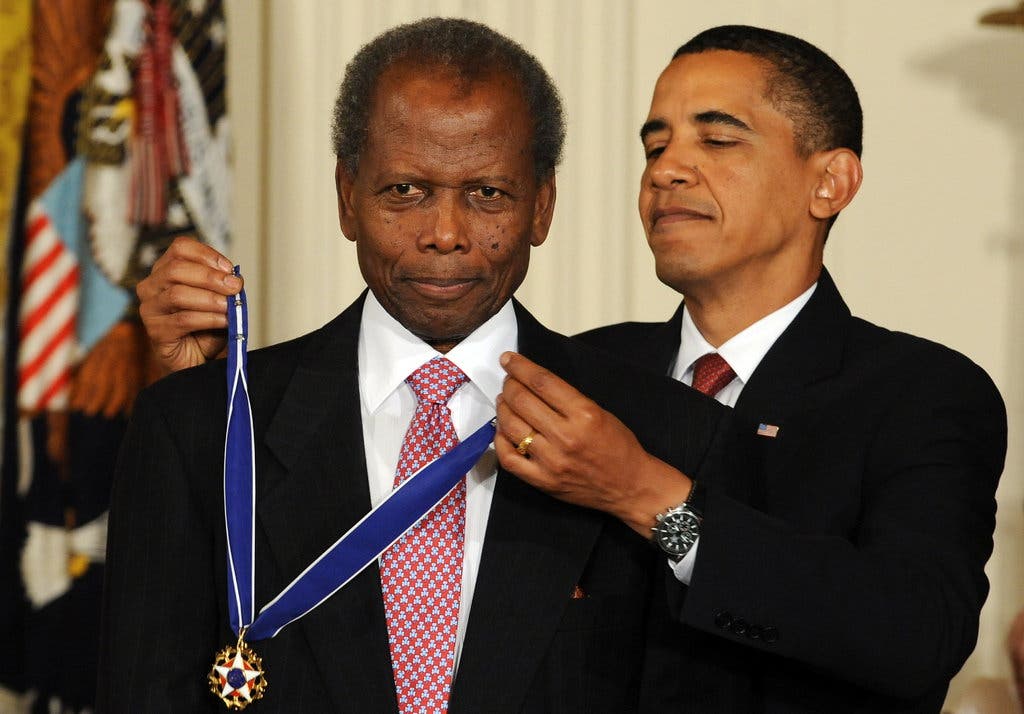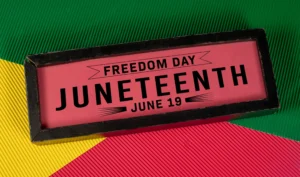Sidney Poitier, Who Paved the Way for Black Actors in Film, Dies at 94

The New York Times
Sidney Poitier, whose portrayal of resolute heroes in films like “To Sir with Love,” “In the Heat of the Night” and “Guess Who’s Coming to Dinner” established him as Hollywood’s first Black matinee idol and helped open the door for Black actors in the film industry, has died at 94. His death was confirmed by Eugene Torchon-Newry, acting director general of the Ministry of Foreign Affairs in the Bahamas, where Mr. Poitier grew up. No other details were immediately provided.
Mr. Poitier, whose Academy Award for the 1963 film “Lilies of the Field” made him the first Black performer to win in the best-actor category, rose to prominence when the civil rights movement was beginning to make headway in the United States. His roles tended to reflect the peaceful integrationist goals of the struggle.
Although often simmering with repressed anger, his characters responded to injustice with quiet determination. They met hatred with reason and forgiveness, sending a reassuring message to white audiences and exposing Mr. Poitier to attack as an Uncle Tom when the civil rights movement took a more militant turn in the late 1960s.
“It’s a choice, a clear choice,” Mr. Poitier said of his film parts in a 1967 interview. “If the fabric of the society were different, I would scream to high heaven to play villains and to deal with different images of Negro life that would be more dimensional. But I’ll be damned if I do that at this stage of the game.”
At the time, Mr. Poitier was one of the highest-paid actors in Hollywood and a top box-office draw, ranked fifth among male actors in Box Office magazine’s poll of theater owners and critics; he was behind only Richard Burton, Paul Newman, Lee Marvin and John Wayne. Yet racial squeamishness would not allow Hollywood to cast him as a romantic lead, despite his good looks.
“To think of the American Negro male in romantic social-sexual circumstances is difficult, you know,” he told an interviewer. “And the reasons why are legion and too many to go into.” Mr. Poitier often found himself in limiting, saintly roles that nevertheless represented an important advance on the demeaning parts offered by Hollywood in the past. In “No Way Out” (1950), his first substantial film role, he played a doctor persecuted by a racist patient, and in “Cry, the Beloved Country” (1952), based on the Alan Paton novel about racism in South Africa, he appeared as a young priest. His character in “Blackboard Jungle” (1955), a troubled student at a tough New York City public school, sees the light and eventually sides with Glenn Ford, the teacher who tries to reach him.
In “The Defiant Ones” (1958), a racial fable that established him as a star and earned him an Academy Award nomination for best actor, he was a prisoner on the run, handcuffed to a fellow convict (and virulent racist) played by Tony Curtis. The best-actor award came in 1964 for his performance in the low-budget “Lilies of the Field,” as an itinerant handyman helping a group of German nuns build a church in the Southwestern desert.
In 1967 Mr. Poitier appeared in three of Hollywood’s top-grossing films, elevating him to the peak of his popularity. “In the Heat of Night” placed him opposite Rod Steiger, as an indolent, bigoted sheriff, with whom Virgil Tibbs, the Philadelphia detective played by Mr. Poitier, must work on a murder investigation in Mississippi. (In an indelible line, the detective insists on the sheriff’s respect when he declares, “They call me Mr. Tibbs!”) In “To Sir, With Love” he was a concerned teacher in a tough London high school, and in “Guess Who’s Coming to Dinner,” a taboo-breaking film about an interracial couple, he played a doctor whose race tests the liberal principles of his prospective in-laws, played by Spencer Tracy and Katharine Hepburn.
Throughout his career, a heavy weight of racial significance bore down on Mr. Poitier and the characters he played. “I felt very much as if I were representing 15, 18 million people with every move I made,” he once wrote.
Mr. Poitier grew up in the Bahamas, but he was born on Feb. 20, 1927, in Miami, where his parents traveled regularly to sell their tomato crop. The youngest of nine children, he wore clothes made from flour sacks and never saw a car, looked in a mirror or tasted ice cream until his father, Reginald, moved the family from Cat Island to Nassau in 1937 after Florida banned the import of Bahamian tomatoes.
When he was 12, Mr. Poitier quit school and became a water boy for a crew of pick-and-shovel laborers. He also began getting into mischief, and his parents, worried that he was becoming a juvenile delinquent, sent him to Miami when he was 14 to live with a married brother, Cyril.
Mr. Poitier had known nothing of segregation growing up on Cat Island, so the rules governing American Black people in the South came as a shock. “It was all over the place like barbed wire,” he later said of American racism. “And I kept running into it and lacerating myself.” In less than a year he fled Miami for New York, arriving with $3 and change in his pocket. He took jobs washing dishes and working as a ditch digger, waterfront laborer and delivery man in the garment district. Life was grim. During a race riot in Harlem, he was shot in the leg. He saved his nickels so that on cold nights he could sleep in pay toilets. In late 1943 Mr. Poitier lied about his age and enlisted in the Army, becoming an orderly with the 1267th Medical Detachment at a veteran’s hospital on Long Island. Feigning a mental disorder, he obtained a discharge in 1945 and returned to New York, where he read in The Amsterdam News that the American Negro Theater was looking for actors. His first audition was a flop. With only a few years of schooling, he read haltingly, in a heavy West Indian accent. Frederick O’Neal, a founder of the theater, showed him the door and advised him to get a job as a dishwasher.
Undeterred, Mr. Poitier bought a radio and practiced speaking English as he heard it from a variety of staff announcers. A kindly fellow worker at the restaurant where he washed dishes helped him with his reading. Mr. Poitier finally won a place in the theater’s acting school, but only after he volunteered to work as a janitor without pay.
His lucky break came when another actor at the theater, Harry Belafonte, did not show up for a rehearsal attended by a Broadway producer. Mr. Poitier took the stage instead and was given a part in an all-Black production of “Lysistrata” in 1946. Although panned by the critics, it led to a job with the road production of “Anna Lucasta.”
In 1959 Mr. Poitier made a triumphant return to Broadway in Lorraine Hansberry’s “A Raisin in the Sun,” winning ecstatic reviews. “Mr. Poitier is a remarkable actor with enormous power that is always under control,” Brooks Atkinson wrote in The New York Times. “Cast as the restless son, he vividly communicates the tumult of a high-strung young man. He is as eloquent when he has nothing to say as when he has a pungent line to speak. He can convey devious processes of thought as graphically as he can clown and dance.” Mr. Poitier repeated the role in the 1961 film version of the play.
With the rise of Black filmmakers like Gordon Parks and Melvin Van Peebles in the late 1960s and early ’70s, Mr. Poitier, now in his 40s, turned to directing and producing. He had proposed the idea for the romantic comedy “For Love of Ivy” (1968), in which he starred with Abbey Lincoln. After joining with Paul Newman and Barbra Streisand in 1969 to form a production company called First Artists, he directed the western “Buck and the Preacher” (1972), in which he acted opposite Mr. Belafonte, and a series of comedies, notably “Uptown Saturday Night” (1974) and “Let’s Do It Again” (1975), in which Mr. Poitier and Bill Cosby teamed up to play a pair of scheming ne’er-do-wells, and “Stir Crazy” (1980), with Richard Pryor and Gene Wilder.
The critics thought little of Mr. Poitier’s directing talents, but enthusiastic audiences, Black and white, made all three films box-office hits. Neither audiences nor critics found much to like in subsequent directorial efforts, like the comedy “Hanky Panky” (1982), with Mr. Wilder and Gilda Radner, or “Ghost Dad” (1990), with Mr. Cosby as a dead father who refuses to leave his three children alone.
In his later years, Mr. Poitier turned in solid performances in forgettable action films and thrillers like “Shoot to Kill” (1988), “Little Nikita” (1988) and “Sneakers” (1992). It was television that provided him with two of his grandest roles.
In 1991 he appeared in the lead role in the ABC drama “Separate but Equal,” a dramatization of the life of Supreme Court Justice Thurgood Marshall. In 1997 he delivered a widely praised performance as Nelson Mandela in “Mandela and de Klerk,” a television movie focusing on the final years of Mr. Mandela’s imprisonment by the white-minority government in South Africa, with Michael Caine in the role of President F.W. de Clerk.
“Sidney Poitier and Nelson Mandela merge with astonishing ease, like a double-exposure photograph in which one image is laid over the other with perfect symmetry,” Caryn James wrote in a review in The New York Times.
In 2002, Mr. Poitier was given an honorary Oscar for his career’s work in motion picture. (At that same Oscar ceremony, Denzel Washington became the first Black actor since Mr. Poitier to win the best-actor award, for “Training Day.”) And in 2009, President Barack Obama, citing his “relentless devotion to breaking down barriers,” awarded him the Presidential Medal of Freedom.
Mr. Poitier’s memoir “This Life” was followed by a second, “The Measure of a Man,” in 2000. Subtitled “A Spiritual Autobiography,” it included Mr. Poitier’s thoughts on life, love, acting and racial politics. It generated a sequel, “Life Beyond Measure: Letters to My Great-Granddaughter” (2008).
Despite his role in changing American perceptions of race and opening to door to a new generation of Black actors, Mr. Poitier remained modest about his career. “History will pinpoint me as merely a minor element in an ongoing major event, a small if necessary energy,” he wrote. “But I am nonetheless gratified at having been chosen.”








